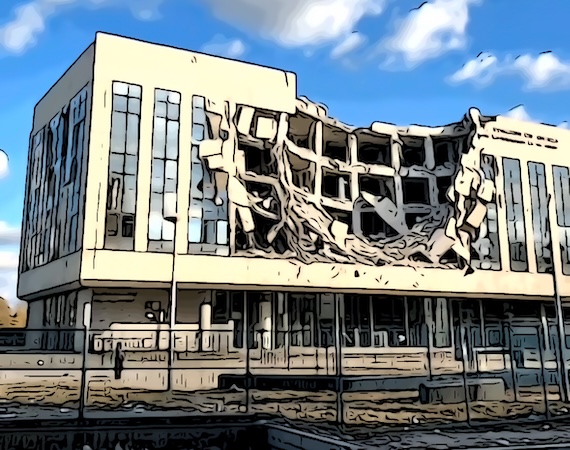( Middle East Monitor ) – As soon as the arrest warrant was issued against the head of the Occupation government, the Occupation went mad, between shock and thinking of ways to appeal the decision, reject it or harming the ICC, as a whole. In the meantime, Netanyahu’s political and field missiles continued to bombard Palestine, the Palestinians, Lebanon and the Lebanese, in a bold attempt to confirm that the arrest warrants will be of no use on the ground, as they did not stop the war, nor did they alleviate the impact of the Zionist fire and gunpowder on the Palestinian and Lebanese peoples.
Indifference is the position that Netanyahu pretended to take shortly after the arrest warrants were issued, armed with the Biden administration’s rejection of them, and the position of some of Netanyahu’s supporters, such as the Prime Minister of Hungary. There was also the reluctance of others to reveal their position on the warrant, such as Germany, the Czech Republic and others.
Relying on the idea that “the best defence is a good offense”, Netanyahu intensified his forces’ progression towards Beit Lahia, Jabalia and Gaza City, in addition to their difficult advancement towards the Litani River. Meanwhile, his forces continued to prevent aid from entering the Gaza Strip, leaving the displaced Palestinians prey to the wind, cold and rain, without shelter or mercy, amidst the insistence to evacuate the depths of the Shuja’iyya and Zeitoun areas. This came at a time when his forces bombed Kamal Adwan Hospital in the northern Gaza Strip, along with ramping up the number of arrests of Palestinians, specifically in Gaza. It reached the point that Israel felt no embarrassment in admitting that more than a quarter of the Palestinian prisoners have scabies because they have been deprived of treatment and care, as well as the basics of life.
This situation completely overlapped with the escalation of the situation in the West Bank. However, Netanyahu’s ambitions did not end with confronting an attack with an attack, but rather by silently searching for a way out of his growing predicament through a ceasefire deal in Lebanon, by agreeing to give France the opportunity to return to the negotiations for the Lebanon deal and gain the honour of announcing a ceasefire. According to Israel’s Channel 13, this ceasefire seems to be in exchange for the French President using what is known as personal immunity to prevent Netanyahu’s arrest and suspend the arrest warrant on French soil.
“International Criminal Court Martyred,” Digital, Midjourney / Clip2Comic, 2024
However, the price of accepting the deal with Lebanon was not limited to this, but rather included the US President’s agreement to lift the ban on a new shipment of heavy weapons to the Occupying state, according to Kan news channel, as well as giving the green light to his coalition partner, the far right Finance Minister, Bezalel Smotrich, who said that half of Gaza’s population will emigrate within two years, and that Israel has the right to annex some of the Strip’s territory. A few hours before the Court’s decision, the US used its veto in the Security Council against the ceasefire draft bill in Gaza in order to provide Netanyahu with leverage in a way that enables him to prolong the war, which he needs to last so he can remain in power, according to Lapid and Lieberman, who are opposed to Netanyahu himself. All this comes in the context of an attempt to stop the storm caused by the ICC decision, but some believe that its timing provides Netanyahu with a pretext to annex the West Bank as a retaliatory step against it, and he would thus have achieved his goal.
Whatever their position, no one can deny the importance of the ICC decision, and its role in changing the course of the current holocaust in one way or another, either negatively or positively. Will the political and field realities witness dramatic changes in the coming days, or will destroying everything continue in order to meet Netanyahu’s ambitions? We will wait and see!
This article appeared in Arabic in Al-Quds on 26 November, 2024.
The views expressed in this article belong to the author and do not necessarily reflect the editorial policy of Middle East Monitor or Informed Comment.
 This work by Middle East Monitor is licensed under a Creative Commons Attribution-NonCommercial-ShareAlike 4.0 International License
This work by Middle East Monitor is licensed under a Creative Commons Attribution-NonCommercial-ShareAlike 4.0 International License


 © 2025 All Rights Reserved
© 2025 All Rights Reserved